All legislative Powers herein granted shall be vested in a Congress of the United States, which shall consist of a Senate and House of Representatives. This is the first sentence of the Constitution. It appears quite simple. The power to enact laws about the subjects listed in the Constitution is granted to the Congress, and the […]
The Constitution, Art. I Section 1: All Legislative Power Granted to the Congress
The 225th Anniversary of the Bill of Rights, Part II
When reflecting on the first ten amendments to the American Constitution, or the Bill of Rights, focus is often on the great freedoms of religion, speech, press and the right to bear arms. The Bill of Rights became 225 years old on December 15, 2016. With that in mind, it is worth a moment to […]
The 225th Anniversary of the Bill of Rights, Part I
December 15, 2016 was the 225th anniversary of one of the great achievements in the history of mankind: affirmation of the inalienable rights of man and specific limits on the power of government to interfere with the rights we are all born with under the laws of nature and nature’s God. These rights were affirmed […]
Constitutional Sound Bites for the Ear and On the Air
Different people learn in different ways. Many like to listen or watch video rather than simply read. This page features constitutional concepts for the ear, and interviews with constitutional stories and the background of the books Constitutional Sound Bites and Cápsulas Informativas Constitucionales. Both the English edition and the Spanish edition in print and as Kindle eBooks are […]
How A Bill Becomes a Law: Article I, Section 7 of the Constitution
The Constitution’s Article I, Section 7 defines the process by which the federal government passes laws. Section 7 opens with the Origination Clause which requires “Bills for raising Revenue” to originate in the House of Representatives. The second clause and third clauses are known as both the “Presentment Clause” and “Lawmaking Clause”. The Presentment Clause is […]
Constitutional Sound Bites: Information for Educators
Many states are either updating or passing new laws regarding civics education for their K-12 students. For example, Illinois’ new civics graduation requirement goes into effect for incoming 2016-17 high school freshman and South Carolina’s new law specifically requires study of America’s Founding Principles and Documents. The renewed interest in formally educating American students on […]
Donald Trump, Khizr Khan, the Constitution and Declaration of Independence
It is one thing to carry the Constitution in your pocket, or have a Constitution app on your smart phone. It is another thing to read it. It is yet another to study and understand the source of the Constitution’s philosophy, principles and purposes. While a pocket Constitution has become central to a presidential campaign […]
Book Review: Igniting the America Revolution, 1773-1775
Paul Revere’s famous ride[1] on April 18, 1775, roused the Minute Men and eventually by the evening of April 19th 3,716 enrolled militia would engage 1,934 British troops in the first military encounter of the American Revolution. The “shot heard round the world” [2] was much more than a single shot. “The best estimate of […]
Consider State Constitutions When the Supreme Court Fails
The United States Supreme Court, in Utah v. Strieff , continued on its course of ominously undermining Fourth Amendment protections against unreasonable searches and seizures by limiting the application of the exclusionary rule.[1] The result is an invitation for police to randomly and unreasonably arrest[2] citizens without the Fourth Amendment’s requirement of probable cause. The Fourth Amendment directly […]
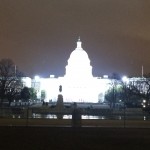
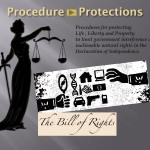
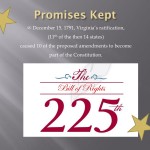
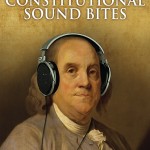
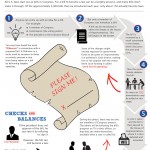









Pneumonia, Senior Citizens and President Pence or President Kaine
At the time of his inauguration, the ninth US President, William Henry Harrison was 68 years, 23 days old. He was the oldest person to assume the office. On March 4. 1841 Harrison’s Inaugural Address, at 8,445 words, taking one hour and 45 minutes remains the longest in history. Harrison’s service as president, which ended […]